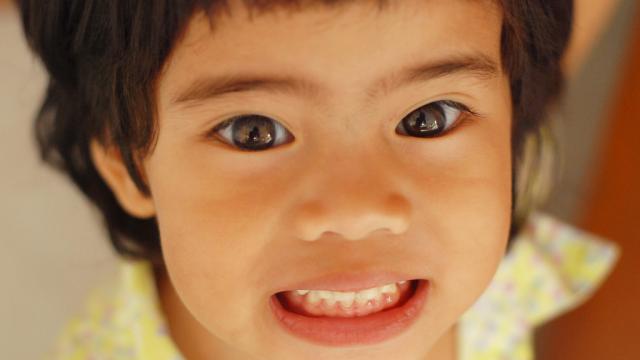Guilt is a crummy emotion, one that most of us try to avoid, either by not doing things we would be ashamed of (stealing lollies, cheating on our spouses) or by rationalising our actions so that guilt can be safely ignored (I needed a treat; my spouse is mean to me). But guilt is actually a useful, necessary feeling that helps us develop into fully formed humans with consciences.
Photo: Anan Mohamad Amri Adanan
And to that end, you absolutely should teach your your kids to feel guilty when it’s appropriate, says Perri Klass, a paediatrician writing for the New York Times: “Certain kinds of guilt are a healthy part of child development.” She addresses the concept of “moral guilt” – a feeling akin to empathy in that it makes us feel bad because we have done something to make someone else feel bad.
As anyone who’s ever had a toddler bite her and laugh knows, guilt is not really developed in children until about age six – the moment when children begin to understand that other people have different experiences and perspectives. Klass interviews a psychologist, Tina Malti, who studies the development of guilt in children, and she notes that at about this age, most kids will report guilt when they have done something wrong that’s negatively affected someone else – a cause and effect that’s beneficial for a child’s moral development: “There’s lots of evidence that healthy guilt promotes children’s prosocial behaviour.”
Now this is an interesting thing to think about: In our culture we receive a lot of messages to not feel guilty, to take what we want and have no regrets. And certainly no parent wants a child to be burdened with guilt and shame over things that have nothing to do with her – her parents’ marital troubles, for example, or a sibling’s health problems. These misplaced feelings of guilt or shame are where emotional health can go haywire (for adults too – look at our cultural tendency to attach shame to certain kinds of food, or body types, or sexual desires).
But there are also, of course, people who frankly don’t have enough shame or guilt, people who don’t have those negative feelings and learn from their mistakes – and so keep on harming other people. Some children do have a reduced capacity for empathy and therefore guilt, and the responsible parent will want to address that by helping a child develop her conscience. It can get tricky, because we don’t want children, who lack perspective about their own position and agency in the world, to feel overly responsible for other people’s feelings – but we also don’t want little Brendan to be whacking all the kids with dead cats and skipping off laughing, either.
The key, says Klass, is to focus on what the child can do differently next time: “Guilt when it’s constructive should give a child an appropriate sense of power and agency, a realistic determination to do things differently. Focus on specific actions, and not on the child’s character; the message is not that there is something wrong with the child, but that the child chose to do something wrong, with certain results.” Dr Malti introduces the idea of “guilt induction”, or a kind of emotional narrating that links together the action and the consequences: “Your friend is crying because you hit him in the face with a dump truck.”
Kids will have to learn what is actually their responsibility and what isn’t (again, something that many adults struggle with), and as kids get older the parent will want to help children, especially those that struggle with anxiety and depression, to put their actions and the consequences in perspective. With this in mind, we hope to raise kids who behave morally, are chastened when they violate their own moral codes, and, at the very least, don’t grow to steal cars and cheat on their spouses.

Comments